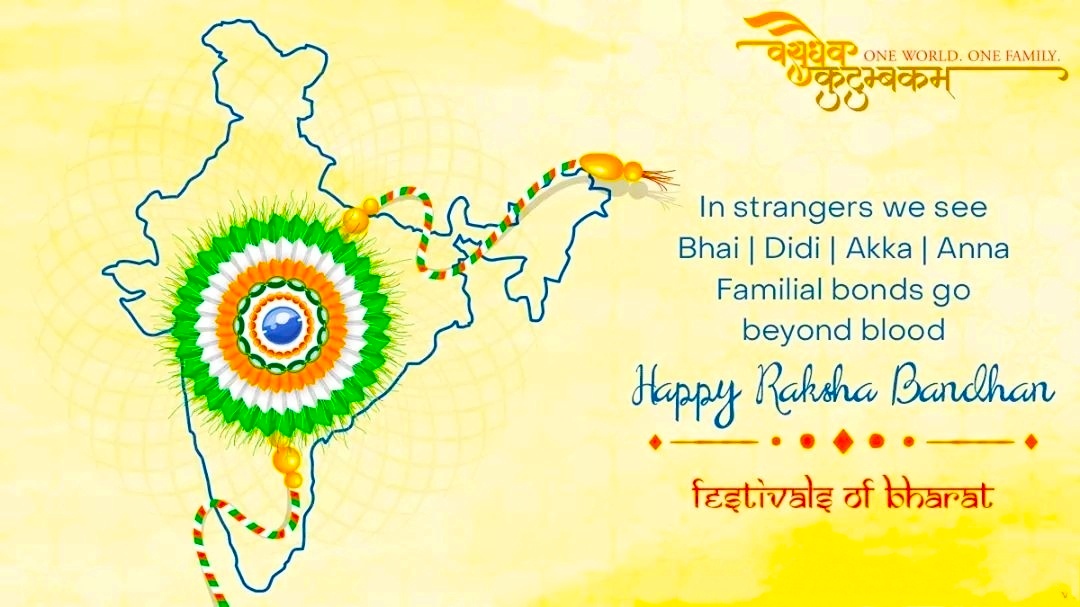What is a Hindu Dharma ?
You must be experiencing now and then that your parents always insist you to do something and to avoid some of the things. Daddy says, “Beta! Raju is your friend. You should not be rude with him!”. Grandma says, “O Dear! Don’t do this. It is bad!!”. Grandpa says, “Beta! Ye hamse bade hai, chalo inko pranam karo!!”. And mom says, “It is a time for Bala-Gokulam. We should not miss it. Let us get ready!”. And you must be feeling, “Oh! My mom and dad are just crazy!!”. Well! They are not crazy. In fact, they try to teach you what is right and what is wrong. They want you to do only the right thing, in thoughts, words and deed so that you always be good with everyone and become a good man (or woman) as you grow. As a duty of parents, they try to teach you values, manners and behavior which are acceptable to the society and to everyone.
In other words, your parents try to teach you a code of conduct which is acceptable to everyone. This code of conduct is the Hindu Dharma. Now, you may wrongly think that, “Ok! That is all about Hindu Dharma!”…. but that is not. In fact, that (code of conduct) is one of the many many aspects of the Hindu Dharma. Hindu Dharma is so huge and ancient with many many thoughts and aspects. Perhaps, we are too young to understand all of them. But let us try to explore some of them here.
Hindu Dharma is known by various names. Each name indicates its important characteristics. Let us try to understand some of them.
Hindu Dharma is a Sanatana Dharma or Vedik Dharma. It is said that the foundation of the Hindu Dharma is based on the ancient scripturs Vedas. Vedas describe the basic principles of the life which are eternal such as ‘nonviolence’, ‘truth’, ‘no-stealing’, ‘cleanliness’ and ‘control of the senses’. Thus as long as human being exists or life exists, Hindu Dharma will exist. That is why it is a Sanatana (eternal) or Vedik Dharma.
Hindu Dharma is a Sanatana Dharma or Vedik Dharma. It is said that the foundation of the Hindu Dharma is based on the ancient scripturs Vedas. Vedas describe the basic principles of the life which are eternal such as ‘nonviolence’, ‘truth’, ‘no-stealing’, ‘cleanliness’ and ‘control of the senses’. Thus as long as human being exists or life exists, Hindu Dharma will exist. That is why it is a Sanatana (eternal) or Vedik Dharma.
Hindu Dharma is a compilation of various thoughts. Unlike other religions, Hindu Dharma did not originate from a single person, a single book or at a single point in time. However, it is evolved by various sages (scholars). who added more value in it from time to time. Consider Hindu Dharma as a Banayan tree, with its roots representing the Vedas and the Upanishads, the thick trunk symbolizing the spiritual experiences of numerous scholars, its branches representing various theological traditions, and the fruits, in different shapes, symbolizing various sectors and subsectors of it.
Hindu Dharma is righteousness or duty. It says to do your duty without involving yourself into immotions or relations and without expecting anything in return. Our scripture, Geeta, says - Do your duty and expect nothing in return. In Mahabharata, Bhishma says, “Don’t do anything that creates a conflict or disharmony”. Always do the right thing that helps to unite all and develop pure divine love and universal brotherhood.
Hindu Dharma is something that holds together. ‘Dharma’ is a samskrit word. It means “to hold together”. Anything that keeps the society or human being together is a Dharma. Good qualities do not make conflict. One should acquire good qualities so that he/she be likeable to everyone.
Hindu Dharma is a Vishwa (universal) Dharma. Hindu Dharma is truly a universal religion because it is based on basic principles which are applicable not only to Hindus but the entire humanity. When a Hindu prays, he does not pray for wealth for himself, his family, his community or Hindu society. Instead he prays for the welfare of all the people of the world. All Hindu prayers are for the entire humanity and not for a particular sector.
Hindu Dharma is not a closed book. Keeping the basic principles intact, it accepts new changes according to the need of the time. Hindu dharma gives freedom of thoughts. Anybody can practice anything as long as it is not harmful. Religious tolerance is one of it’s virtues. It has a power to assimilate all faiths and beliefs that exist in the world.
After reading this, you must be feeling confident and proud that you belong to the Hindu Dharma. Though Hindu Dharma is complicated, one aspect of it is quite simple to understand which is - whatever good you do is Dharma and whatever bad you do is A-dharma. So, always do good (always do Dharma). Always be nice and humble to everyone. As you grow, you will learn and experience more about the Hindu Dharma. Since ages, our forefathers have retained this treasure. Now it is our turn to do this job.





.jpg)






Comments
Post a Comment